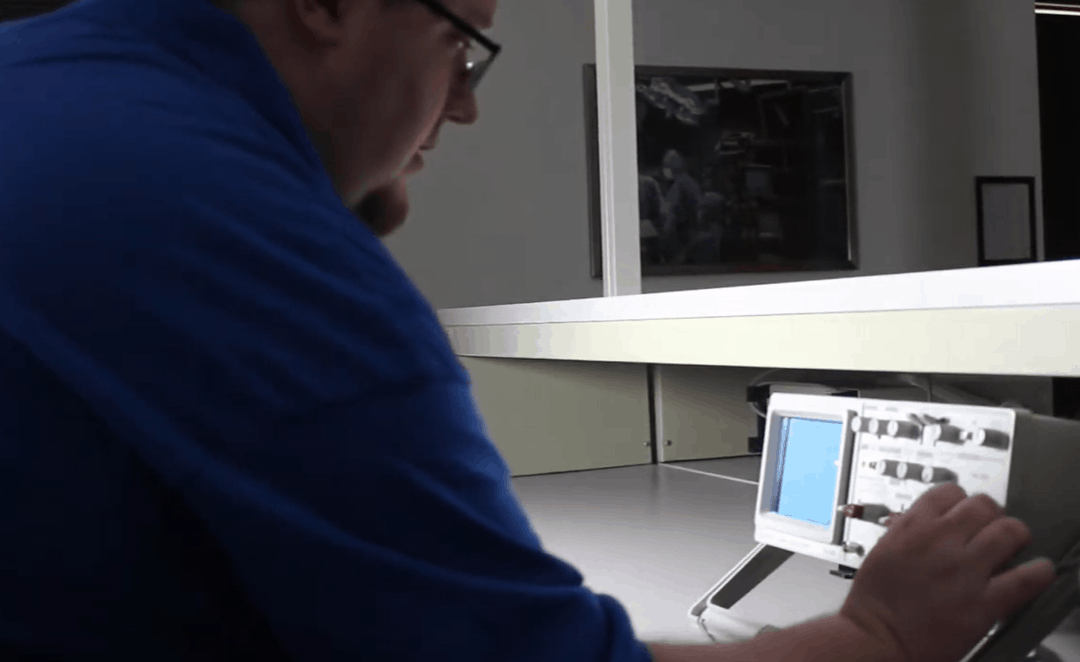Wondering what it would be like to repair ventilators and other crucial pieces of medical equipment? Wondering what a medical equipment repair tech even does?
We talked to Josh Crawley, a 2021 graduate of the MedQuest College Medical Equipment Repair Program (MERT). The program trains participants to repair equipment used in hospitals, medical centers and clinics, as well as wholesale suppliers and electronic repair shops. Graduates perform maintenance and repair work on ultrasound and anesthesia machines and ventilators.
The MERT Program at MedQuest College also prepares students for the Certified Biomedical Equipment Technician (CBET) Credential that provides graduates with a nationally recognized credential that employers look for in new hires. Part of the program tuition includes exam prep and the exam itself. To learn more about the program, reach out to an Admissions Advisor or schedule a virtual tour.
What about the MERT program appealed to you?
There’s always going to be a need for people in medicine – both helping directly with patients and helping to be sure the machines medical professionals use work as intended. As equipment is used routinely, issues will arise and maintenance will be required. People are needed to fix them. I can do that!
What does a person in the MERT field do?
In short, a medical equipment repair tech focuses on maintaining medical equipment and fixing things when they break. Whether that’s an MRI machine, a piece of surgical equipment or machines that monitor and track a patient’s vitals, a MERT graduate is trained to keep medical equipment running smoothly – allowing hospital staff and others to ensure a safe and speedy recovery for their patients.
Technicians are responsible for performing maintenance and safety checks, keeping repair logs, calibrating equipment, and testing parts on machines such as electronic wheelchairs, surgical robots and nuclear imaging. They are also responsible for reviewing training manuals and teaching medical professionals how to operate equipment.
What intern and externship programs were part of your coursework?
Before graduation, all students are required to complete an externship under the guidance of area experts. During our externships, we work to refine the skills we’ve learned in class. Additionally, we also work directly with functioning and nonfunctioning machines for real-life experiences.
How did MedQuest help you get a job?
Our Career Services Director provides assistance to graduating students and alumni with resume writing, preparation of cover letters, interviewing techniques and networking skills. The college provides job placement assistance for its graduates. I’m looking forward to graduating soon and entering the workforce.
Medical Equipment Repair Technician’s Responsibilities
- Surgical Equipment: Lights, Chairs, Table, Microscopes, instruments, etc.
- Infant Machines: Warmers, Fetal and Patient Monitors, Pediatric Exam Tables, Incubators, and more
- C-Arm Fluoroscopy Machines: Super C, Mobile, MiniView, etc.
- Anesthesia Machines both large stationary and portable
- Patient Monitoring: Vital Signs, Oximeter, Clinical Information Center, Anesthesia Gas, Handheld and Multi-Parameter
- Ultrasound Machines including cardiac, portable, color doppler and advanced digital
- Endoscopy: cameras, light sources, video processors, insufflators, colonoscopes, electrosurgical units
Where does a Medical Equipment Repair Technician work?
There is a need for highly skilled and trained Medical Equipment Repair Technicians both locally and nationally. Below are facilities utilizing technicians:
• Hospitals
• Medical Centers
• Private Practice Groups
• Clinics
• Wholesale Suppliers
• Electronic Repair Shops
Learn more from MedQuest College MERT Program Director, Dr. Marwa Ismail.
Program Objective
The Medical Equipment Repair Technician program offered by MedQuest College aims at providing a solid foundation in both biomedical sciences and electronics to prepare graduates to enter the biomedical field as technical professionals who can maintain, calibrate, modify, troubleshoot, and repair the biomedical equipment.
As a biomedical equipment technician, it is of the highest priority to ensure the medical equipment is fully functional. Manufacturers also hire biomedical technicians to build and final-test biomedical electronic equipment. The curriculum is application-oriented in the areas of electronics and bioinstrumentation, offering a cooperative education externship in facilities that have a wide variety of medical equipment.

